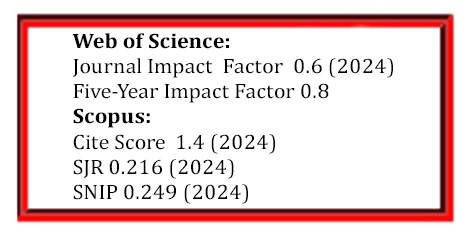Water Quality Simulation of Reclaimed Water Supply Type Rivers and Application of Metal Organic Frameworks in Phosphorus Pollution Control
DOI:
https://doi.org/10.5755/j02.ms.41345Keywords:
regenerated water supply type river, water quality simulation, organic framework materials, adsorbent, phosphorus removalAbstract
This study focuses on the Xinfeng River, a regenerated water supply type river, and conducts water quality simulation and research on the application of metal organic framework materials (MOFs) in phosphorus pollution control. Using the storm water management model (SWMM) and environmental fluid dynamics code (EFDC) coupling model, the water quality changes of Xinfeng River under different scenarios of reclaimed water supply were simulated. The model was calibrated and verified through historical monitoring data, and the results showed that chemical oxygen demand (COD) could stably meet the Class V water quality standard, while NH3-N and total phosphorus (TP) could not meet the standard. Secondly, NH2-MIL-125(Ti) and NH2-UIO-66(Zr) were synthesized in this study. The morphology, structure, and properties of MOFs were characterized using scanning electron microscopy (SEM), Fourier transform infrared spectroscopy (FTIR), X-ray diffraction (XRD), Brunauer-Emmett-Teller (BET), and thermogravimetric analysis (TGA), and they were used for adsorption and removal of phosphorus in water environments. The results indicate that NH2-MIL-125(Ti) has a larger adsorption capacity (10.42 mg/g), and the adsorption of phosphorus by NH2-MIL-125(Ti) and NH2-UIO-66(Zr) is more in line with the quasi second order kinetic model, and their adsorption isotherms are more in line with the Freundlich model. In addition, both adsorbents have good adsorption regeneration performance, with a phosphorus removal rate of over 85 % after 5 cycles. The water quality simulation model constructed in this study can accurately predict the impact of recycled water supply on river water quality. The selected MOFs materials have good phosphorus adsorption and removal performance, providing a scientific basis and technical support for improving water quality and controlling phosphorus pollution in recycled water supply rivers.
Downloads
Published
Issue
Section
License
The copyrights for articles in this journal are retained by the author(s), with first publication rights granted to the journal. By virtue of their appearance in this open-access journal, articles are free to use with proper attribution in educational and other non-commercial settings.



